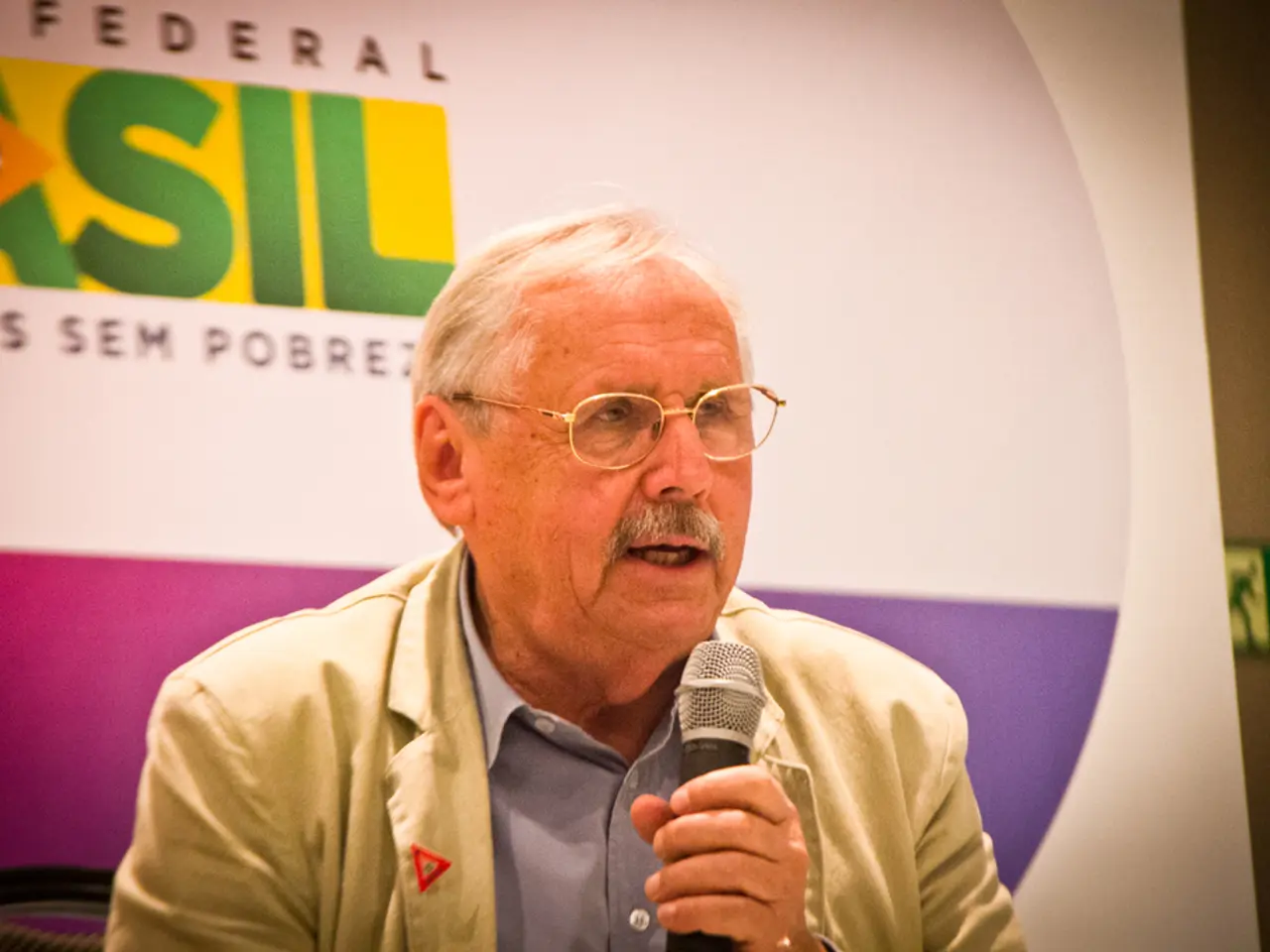Kazakhstan-US Partnership Remains Strategic Amidst Evolving Geopolitics
Kazakh Leader Celebrates Donald Trump's Ascension to U.S. Presidency
On January 20, 2021, the swearing-in ceremony in Washington, D.C. marked a significant event in American politics, with President Kassym-Jomart Tokayev of Kazakhstan in attendance. The ceremony was likely attended by various government officials and dignitaries.
In a gesture of goodwill towards the United States, President Tokayev sent a congratulatory telegram to Donald Trump on his inauguration for a second term as the 47th President of the United States. However, the telegram did not indicate any changes in Kazakhstan's foreign policy towards the United States nor mention any specific energy projects or initiatives, nuclear non-proliferation agreements, or new international security measures or collaborations.
The current partnership between Kazakhstan and the United States remains strategically important, focusing primarily on energy trade, nuclear non-proliferation, and international security cooperation. In the energy sector, Kazakhstan's primary exports to the U.S. are oil, uranium, silver, and ferroalloys, with oil accounting for about 56% and uranium 16% of exports in 2024.
In terms of nuclear non-proliferation, the two countries maintain a strong partnership. Since at least 2010, Kazakhstan and the U.S. have pledged to intensify cooperation on nuclear safety and non-proliferation as part of strategic dialogue initiated during summit meetings involving Presidents Nazarbayev and Obama.
Regarding international security, Kazakhstan contributes to global peacekeeping and supports UN missions, reflecting its role as a responsible middle power. It served as a non-permanent member of the UN Security Council (2017–2018) and continues active involvement in peacekeeping operations.
However, broader geopolitical complexities have introduced challenges. Recent U.S. tariffs on certain Kazakhstan exports, although limited in scope and mostly exempting key energy commodities, illustrate a more cautious or recalibrated trade approach from Washington toward Kazakhstan and Central Asia. Despite this, dialogue between the two countries persists, aiming to sustain and strengthen their strategic partnership.
President Tokayev expressed confidence in the further strengthening of the partnership between Kazakhstan and the United States, with opportunities for cooperation including energy, nuclear non-proliferation, and international security. This diplomatic approach complements Kazakhstan's international role fostering regional stability in Central Asia and its active involvement in peacekeeping operations and mediation efforts, notably seen in discussions about a potential role as a mediator in the Russia-Ukraine conflict.
In summary, Kazakhstan-US relations remain centered on energy trade (notably in oil and uranium), nuclear non-proliferation collaboration, and support for international security through peacekeeping and mediation efforts, while also navigating evolving trade tensions and broader geopolitical dynamics.
- The strategic partnership between Kazakhstan and the United States extends to various aspects, including policy-and-legislation regarding war-and-conflicts, as evidenced by Kazakhstan's active involvement in peacekeeping operations and mediation efforts, such as discussions about a potential role in the Russia-Ukraine conflict.
- General-news outlets frequently cover the evolving geopolitics impacting the Kazakhstan-US partnership, with migration emerging as a potential area of focus, given the role of both countries in global peacekeeping and the ongoing complications in regions beset by conflict and instability.








